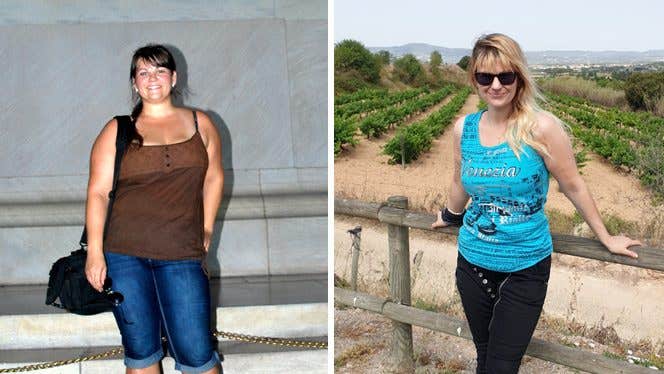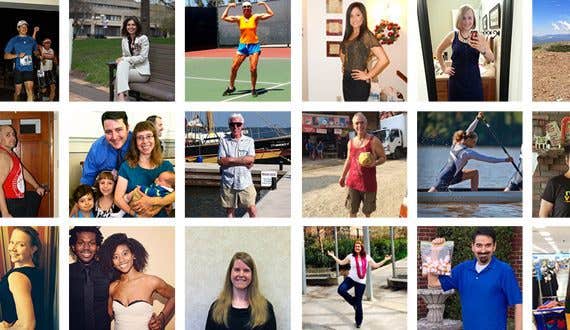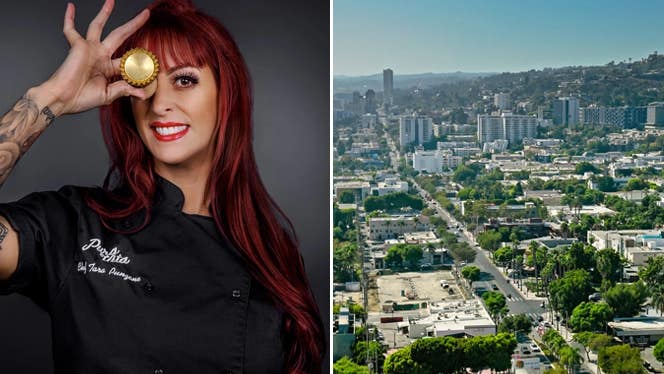
As Early as Day 3 on a WFPB Diet, I Noticed I Had So Much More Energy
By Aurelija Pranckunaite,
I grew up believing that eating meat was necessary. I was encouraged to follow the family traditions and not question them. Why would I? Everyone around us was eating the same foods. My diet consisted of red meat, chicken, fish, eggs, lots of saturated fat, butter and buttermilk, obscene amounts of sugar, and just a handful of vegetables.
My biggest health concern was my weight. When I started piling on the pounds during my teenage years, I was told to simply cut down the amount that I ate. Every diet I tried only lasted for a limited time. I’d always give up and return to my old ways. Sometimes setting my mind up for a diet was too challenging. Even after reading through all aspects of a new “regimen” in a magazine, I would flip the magazine over and go indulge in sweets.
In 2020, when COVID-19 hit, health became the most talked about topic worldwide. In researching the leading causes of death, I was surprised to find that most of them were lifestyle-related, and that many of the diseases had been linked specifically to diets high in animal products. I was flabbergasted. I watched Cowspiracy, What the Health, and Game Changers. I followed up on the expert sources in these documentaries and read Dr. Michael Greger’s book How Not to Die followed by How Not to Diet. His research led me to Dr. T. Colin Campbell’s book Whole, which explains how a whole-food, plant-based diet provides optimal nutrition. My nutrition education continued with Dr. Neal Barnard, Dr. Caldwell Esselstyn, and Rich Roll. All of my inherited beliefs regarding diets, health, and nutrition were completely upended.
But the idea that we could prevent and reverse chronic diseases just by eating fruits, veggies, and whole grains almost sounded too good to be true. I was skeptical that food could have such a significant influence. My partner and I decided to test it for ourselves. The fact that nobody was trying to sell us anything—nobody was trying to get us to subscribe to expensive supplements or pay to join a club—is what convinced us to give it a try. There were zero costs involved. The local grocery store had everything we needed to start our experiment. We challenged ourselves to go one month on a whole-food, plant-based diet. I used the Forks Over Knives website as a source for meal and cooking ideas. After getting an understanding of the principal points, I established a menu for us for the month. And we went all-in, cold turkey (pun intended).
Never Going Back
Two weeks of eating WFPB was all it took for me to say, “I will never eat meat again.”
I started feeling the positive changes right away, as soon as Day 3. The amount of extra energy I had—and the feeling of being as light as a feather, even after a meal—were mind-blowing. I'd never felt so good after eating in my life. I was convinced.
I was surprised that I no longer experienced hunger attacks: Technically, I was on a diet, but it didn’t feel that way. I was able to have more food than ever before. Every diet I’d tried before had strict portion sizes, allocated time slots for eating, no variations; they all required a lot of hard work, were not enjoyable, and left me feeling hopeless. The WFPB lifestyle suits me so much better.
It’s also improved my understanding of nutrition. It’s made me question why I was eating certain products in the first place. I later realized that I was simply following cultural and family habits.
Eating this way has also opened me up to a seemingly infinite array of vegetables and a wide world of spices. It’s improved my relationship with food.
Since making the switch, all forms of exercise have become much easier. Today I look better and feel happier than I did 20 years ago. I am delighted to speak to anyone who has an interest in a plant-based lifestyle. I feel obliged to share the positivity and empower others. People have the right to know that they can improve their mental and physical health by replacing what’s on their plate.
To learn more about a whole-food, plant-based diet, visit our Plant-Based Primer.
Has a whole-food, plant-based diet impacted your life?
We would love to hear about it!
SHARE YOUR STORY
Join our mailing list
Get free recipes and the latest info on living a happy, healthy plant-based lifestyle.
By providing your email address, you consent to receive newsletter emails from Forks Over Knives. We value your privacy and will keep your email address safe. You may unsubscribe from our emails at any time.
